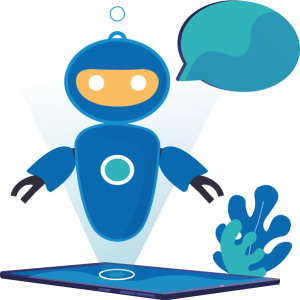Home » About
About
Artificial Intelligence (AI) is a timely topic and is currently a key priority for Europe. As AI and related technologies expand and grow, it becomes crucial for parents, educators, and policy makers to better understand, monitor, and regulate its uses as a medium to unfold their educational affordances.
The potential impact of artificial intelligence on children needs to be addressed, since children are the first-Generation AI. By teaching children, the fundamentals of AI technology, it is one of the best ways to support the development of key skills and knowledge needed to protect themselves from excessive use and possible abuse. This is important because although the benefits of AI and the potential for strong education value on one hand, it also possesses strong limitations on the other by placing children under scrutiny and strict monitoring, and often times without them knowing it. AI is embedded in several applications and tools we interact daily. These include the use of YouTube, Social Media, and search engines. The activities of the project will likely anticipate the EU strategy for AI and promote its integration in primary education through an interdisciplinary STEM approach for the development of key competences and digital skills of teachers and learners
Upon completion of the project, the following results will be achieved:
- Improved understanding of AI by teachers and students
- Improved engagement and interest of students in STEM activities
- Improved digital competences of both educators and students
Project aim
The aim of the GENERATION AI project is to support educators and young learners understand the basic principles of AI and help them become more critical consumers of technology applications across their life span.
Specific Objectives
- Support educators in understanding AI uses in everyday life.
- Prepare educators to teach their students about AI, its applications, strengths, and weaknesses, in line with DigiComp and DigiEDU.
- Support teachers and students in developing problem-solving skills, computational thinking and design thinking involving AI tools and methods.
- Support teachers and students in developing their digital skills and develop a critical understanding of AI and its application to everyday life.
Methodology
Artificial Intelligence (AI) will be generated as a novel component to uplift STEM (Science, Technology, Engineering, and Mathematics) education and cultivate the digital skills of teachers and young learners. These digital skills (computational, design, critical thinking, problem solving, creativity, and decision making) are required to engage in processes for understanding basic concepts of AI. The multi-dimensional applications of AI learning for STEM education is an innovative and interdisciplinary approach which will unfold the understandings of AI and supports the taking up of digital technologies and of innovative practices.

